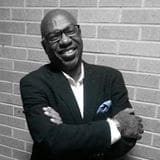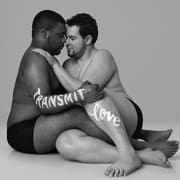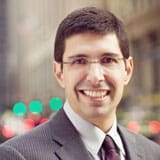Historic Black churches and the HIV awareness movement haven’t always seen eye-to-eye — but when the HIV epidemic today affects the African-American community more than other groups, some see the Black church as the key to raising awareness and reducing stigma around HIV.
 This reconciliation is exactly what the National Week of Prayer for the Healing of AIDS (March 1-8) aims to accomplish. Rev. Charles Straight is at the forefront of that work — not just during this special week, but every day in his role as pastor of Faith United Methodist Church in Dolton, IL.
This reconciliation is exactly what the National Week of Prayer for the Healing of AIDS (March 1-8) aims to accomplish. Rev. Charles Straight is at the forefront of that work — not just during this special week, but every day in his role as pastor of Faith United Methodist Church in Dolton, IL.
Straight, an HIV-positive, openly gay pastor, has long held the cause of HIV awareness close to his heart. He serves on the Board of Directors at the AIDS Foundation of Chicago (AFC), has led HIV ministries in faith communities for years and took a leading role in two events related to the National Week of Prayer for the Healing of AIDS — a gospel music event at his church on March 1 and an upcoming conference about HIV and the Black church of March 7.
AFC’s Communications Coordinator Lawrence Turner spoke with Rev. Straight about the Black church and its relationship to the HIV epidemic in the U.S.
Lawrence Turner: Why are the National Week of Prayer for the Healing of HIV/AIDS activities important to you?
Rev. Charles Straight: There is no better time than this Week of Prayer for the Healing of AIDS to have people of faith come together and do something that they are comfortable with. It is important because it is an opportunity for the church, and for people of faith, to really do what they know how to do best.
LT: What are your hopes for the African-American church community, in relation to HIV and stigma?
CS: My hope is that we can do something better than what we have done over the past 30 years. Stigma is a huge part of why the disease continues to fester and grow in our community. When I talk about the prayer for the healing of AIDS, it’s not just for the people impacted by AIDS, but also for the community — that we would free ourselves of the bondage that causes us to inflict shame and stigma on others.
LT: In what ways have you experienced stigma? How did you handle it?
CS: Let’s start out with just being black. Stigma happens all the time. I’ve felt it from police, I have felt it in job interviews and I’ve felt it in numerous places in my lifetime. In the church, I have felt stigma around my sexual orientation. The way that I have been able to handle it is to fight for justice. All of our issues in some way or another are connected. Whether our issue is of gender inequality, economic inequality, or human sexuality for me, these issues as well as the stigma of people living with HIV are intertwined with bigger social justice issues. When we all do better, we all do better.
LT: What are your ideas on how we can de-stigmatize HIV in the African-American church community?
CS: We must fight; we’ve got to come out. Part of the reason that stigma has such a hold — in my opinion — in the black church and in the black community is because of the inability for many black gay men to come out and be authentically who they are. So shame has the opportunity to fester in our lives and in our surroundings when we are not able to tell people and to be authentically who we are. So when you release the shame, and say, “This is me; this is who God created. I am who I am supposed to be, and I am not ashamed of that,” you take away some of the power of stigma.
There has to be a coming out, but the other part of the problem for me is that, way too many of us have not become advocates for the damage that HIV is doing in our community. We have several organizations in the white gay community that are about empowering gay people and subsequently about destigmatizing and taking away the power of HIV in the community, we don’t have enough of that in black America, in the black community, in the black church. So subsequently there has to be an uprising of people who are angry about their sons and their daughters, their mothers and fathers, sisters and brothers, dying from this disease.
We have to take to the streets, we have to call out politicians who are not working to change the direction of HIV in the black community, and we have to call out preachers who are preaching homophobic messages that are harming our sisters and brothers. There has not been an uprising within our community, we have to get mad about it and we have to do something about it. We have to put our energy, our time, and our money into making a difference and that will only happen if it starts with the people who are most impacted by the disease, and that goes right back to black folks who are gay and lesbian, and in particularly gay. The disease is still mostly among gay men, and especially black gay men.
LT: Where do we begin? What is the first step towards becoming a more inclusive church community?
CS: The first step is to take ownership of who we are. I own my life — there are three things about me that I will never deny: I will never deny my blackness, I am so proud to be a part of such a strong heritage, to be a part of a people who have been able to overcome all of the things that we have had to overcome. I will never deny my Christianity, I love God and I am so glad to be a part of a life that calls me to be a witness for him, that calls me to share the love of God that I found in my life; I am undeniably Christian. Third, I am undeniably gay. God made me just the way that I am, and I am so incredibly glad to be who I am and doing what I do.
So when we take ownership of who we are, and then we take ownership of the disease — that this is a black disease, killing black people — then we can come together and we can challenge those who would beat us down, put us in the closet, make us think that we are at fault for having the disease and doing something wrong in order to make the disease continue to grow in our community. We can take to the streets; we can talk to one another. There are far too few people that talk about HIV amongst their families, their friends, but when we take ownership of it, then we can have conversations and we can help one another. We can help people get into treatment; we can talk about PrEP and whether or not it is the best way to help some of our brothers who are unable to practice safe sex, and so many other things.
.


